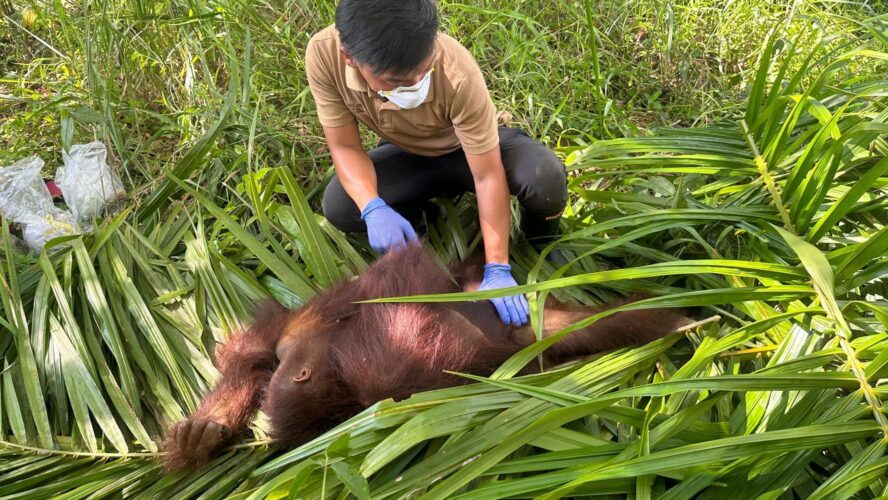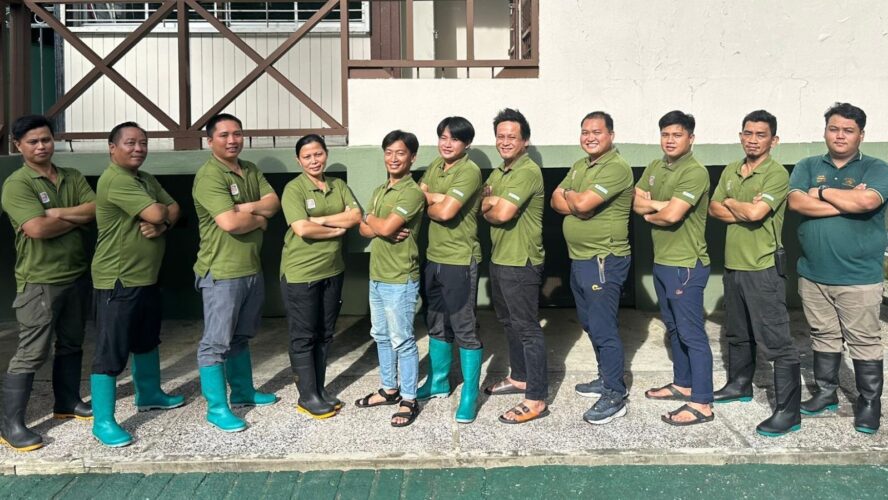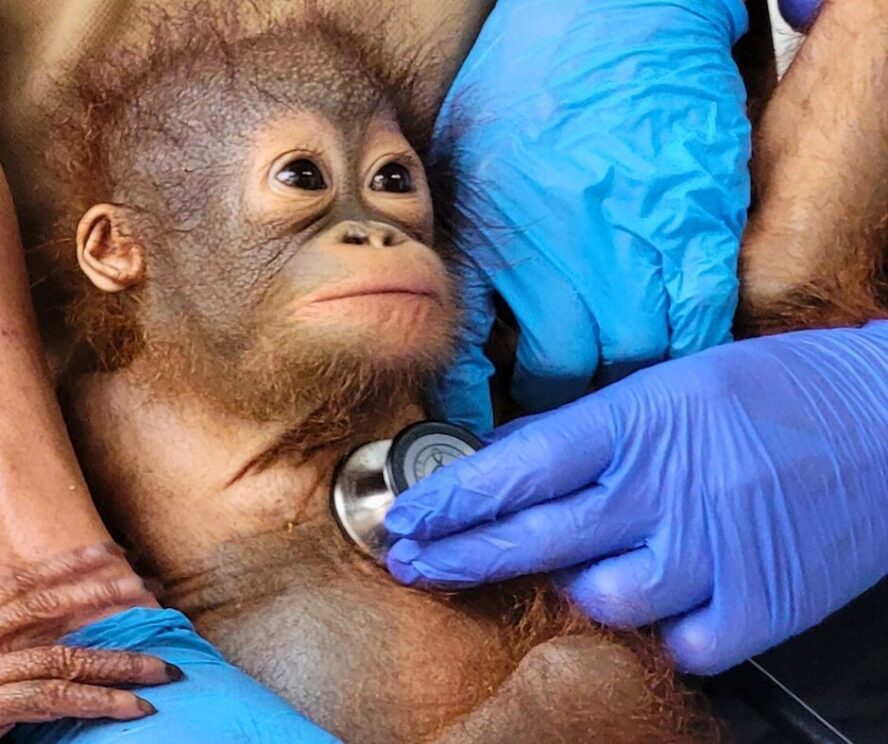

Projects
Orangutan rehabilitation
Rescued orangutans at Sepilok undergo a five-step rehabilitation programme to increase their chances of returning to the wild.
Orangutan infants stay with their mothers for up to eight years in the wild. Orangutans separated from their mothers prematurely, stand very little chance of survival in the wild. The fortunate ones are rescued and taken to rehabilitation centres, like Sepilok.
Many are malnourished, dehydrated and some have sustained injuries. Almost all are suffering from severe stress and trauma.

Sepilok provides specialist care for these vulnerable youngsters, equipping them with the life skills they need for an independent life in the wild.
This is a lengthy and costly process, which can take up to eight years, depending on the orangutan's age and ability.
Step 1
Admission & assessment
Orangutans undergo a thorough health check. They'll receive treatment for any illness or injury and are provided with their own enclosure.
Very young orangutans have one-to-one care from a vet nurse who acts as a surrogate mother. The team take it in turns to look after and feed the babies throughout the night.
After a period of quarantine, to ensure they are not able to spread any diseases to the other orangutans, they are slowly introduced to their fellow nursery mates.

Step 2
Indoor nursery
This is where they start to build their confidence, using a series of climbing ropes that connect to trees and platforms. They will spend a minimum of four hours per day learning skills such as climbing, nest-building and selecting their own food to eat from the forest.
As the orangutans gain additional skills, they are encouraged to spend more time in the trees with their peers and rely less on support from their human carers.

Step 3
Outdoor nursery
This is the training area for older orangutans. Here they continue to develop their climbing and foraging skills. Dependence on food and emotional support from the care team is reduced. They're given increased freedom and are able to spend the night in the forest, if they choose. They are monitored for signs of becoming self-sufficient and ready for release.

Step 4
Soft release
The team will bring the orangutans further into the Sepilok-Kabili reserve for a ‘soft release’. They spend a few days acclimatising to their new surroundings and are provided with some supplementary food. They are able to freely explore the area and become self-reliant, spending less time at the release site.

Step 5
Independence
Orangutans that show no sign of wanting or needing human support are left to start their new lives as independent, wild orangutans.

Explore more articles
![Orangutan Rescue]()
Projects in the field
Rescue & reintroduction
We aid the rescue and reintroduction of orphaned, displaced and injured orangutans, as well as those who are victims of the illegal wildlife trade.
![Team photo of Alvin, Bonny, Ibri, Lineker, Arnold Victor, Jergen, Rico, Sylvester, Reklin and Pamik standing in a line with arms crossed and smiling]()
![Veterinarian listening to infant orangutans heartbeat]()
Projects in the field
Veterinary care & support
The clinic at Sepilok Orangutan Rehabilitation Centre provides 24-hour care to injured and sick orangutans.


